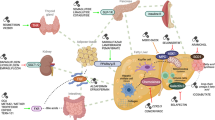Summary
The effect of rosiglitazone as the ligand of peroxisome proliferator-activated receptor γ (PPARγ) inhibiting the TLR4 expression in ischemic lobes in partial hepatic ischemia/reperfusion injury (IRI) in BABL/C mice and the action of rosiglitazone inhibiting the TLR4 receptor-mediated inherent immune response were investigated. The model of the mouse partial hepatic ischemia/reperfusion injury was established. All the animals were randomly divided into 3 groups: rosiglitazone group, vehicle (dimethylsulphoxide, DMSO) group and sham operation group. The hepatic samples were collected when mice were sacrificed 0, 2, 4 and 6 h after reperfusion following 1 h ischemia to analyze the acute phase of hepatic IRI. The dynamic expression of TIR4 mRNA was detected quantitatively by real-time-PCR, and the levels of TNF-α, IL-10 and ALT in portal vein were determined in all groups. After restoration of blood supply, the expression of TLR4 mRNA in ischemic lobes was detected in 0, 2, 4 and 6 h after reperfusion following 1 h ischemia in rosiglitazone group and vehicle group. The most intensive expression of TLR4 mRNA was present at 4 h after reperfusion in ischemic lobes in vehicle group. As compared with vehicle group, the expression of TLR4 mRNA in ischemic lobes in rosiglitazone group was significantly decreased at 4 h after reperfusion. The level of IL-10 in portal vein was markedly up-regulated in rosiglitazone group as compared with vehicle group. Contrarily, the levels of TNF-α and ALT in portal vein were markedly down-regulated in rosiglitazone group as compared with vehicle group at every time point in mouse partial hepatic IRI model. Rosiglitazone could alleviate the hepatic IRI by inhibiting TLR4 receptor-mediated inherent immune response.
Similar content being viewed by others
References
Constantino F, Ronald W B, Jerzy W K et al. Hepatic ischemia/reperfusion injury—a fresh look. Exp Mol Pathol, 2003,74:86
Nakajima A, Wada K, Miki H et al. Endogenous PPARγ mediates anti-inflammatory activity in murine ischemia-reperfusion injury. Gastroenterology, 2001, 120: 460–469
Lawlor D K, Brock R W, Harrls K A et al. Cytokines contribute to early hepatic parenchymal injury and microvascular dysfuntion after bilateral hind limb ischemia. J Vasc Surg, 1999,30(4):533–541
Yoshidome H, Kato A, Edwards M J et al. Interleukin-10 suppresses hepatic-ischemia reperfusion injury in mice: implications of a control role for nuclear factor kappaB. Hepatology, 1999,30(2):203–208
Le Moine O, Louis H, Demols A et al. Cold liver ischemia/reperfusion injury critically depends on liver T cells and is improved by donor pretreatment with interleukin 10 in mice. Hepatology, 2000,31(6):1266–1274
Murphy G J, Holder J C. PPAR-g agonists: therapeutic role in diabetes, inflammation and cancer. Trends Pharmacol Sci, 2000,21,469–474
Pascual L G, Glass C K. Peroxisome proliferator-activat ed receptor gamma-dependent repression of the inducible nitric oxide synthase gene. Mol Cell Biol, 2000, 20:4699–4707
Jiang C, Ting A T, Seed B. PPAR-gamma agonists inhibit production of monocyte inflammatory cytokines. Nature, 1998,391:82–86
Wada K, Nakajima A, Takahashi H et al. Protective effect of endogenous PPARγ against acute gastric mucosal lesions associated with ischemia-reperfusion. Am J Physiol Gastrointest Liver Physiol, 2004,287:G452–G458
Cuzzocrea S, Pisano B, Dugo L et al. Rosiglitazone and 5-deoxy-delta12, 14-preostaglandinJ2, ligand of the peroxisome proliferator-activated receptor-gamma (PPAR-gamma), reduce ischemia/reperfusion injury of the gut. Br J Pharmacol, 2003,140:366–376
Takeda K, Kaisho T, Akira S. Toll-like receptors. Annu Rev Immunol, 2003,21:335–376
Zhai Y, Shen X D, O’Connell R et al. Cutting edge: TLR4 activation mediates liver ischemia/reperfusion inflammatory response via IFN regulatory factor 3-dependent MyD88-independent Pathway. J Immunol, 2004,173:7115–7119
Appel S, Mirakaj V, Bringmann A et al. PPAR-γ agonists inhibit toll-like receptor-mediated activation of dendritic cells via the MAP kinase and NF-κB pathways. Blood, 2005,106:3888–3894
Author information
Authors and Affiliations
Additional information
This project was supported by a grant from National Natural Sciences Foundation of China (No. 30200272).
Rights and permissions
About this article
Cite this article
Zhai, D., Zhang, J., Zheng, Q. et al. Significance of rosiglitazone inhibiting TLR4 expression in partial hepatic ischemia/reperfusion of mice. J. Huazhong Univ. Sci. Technol. [Med. Sci.] 28, 564–567 (2008). https://doi.org/10.1007/s11596-008-0516-8
Received:
Published:
Issue Date:
DOI: https://doi.org/10.1007/s11596-008-0516-8




